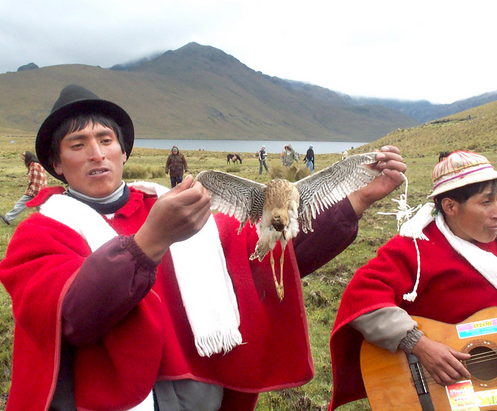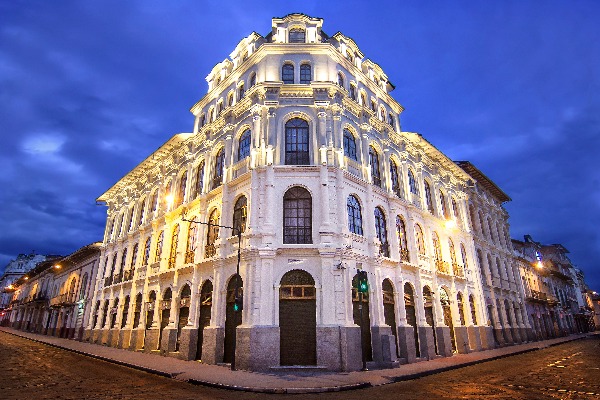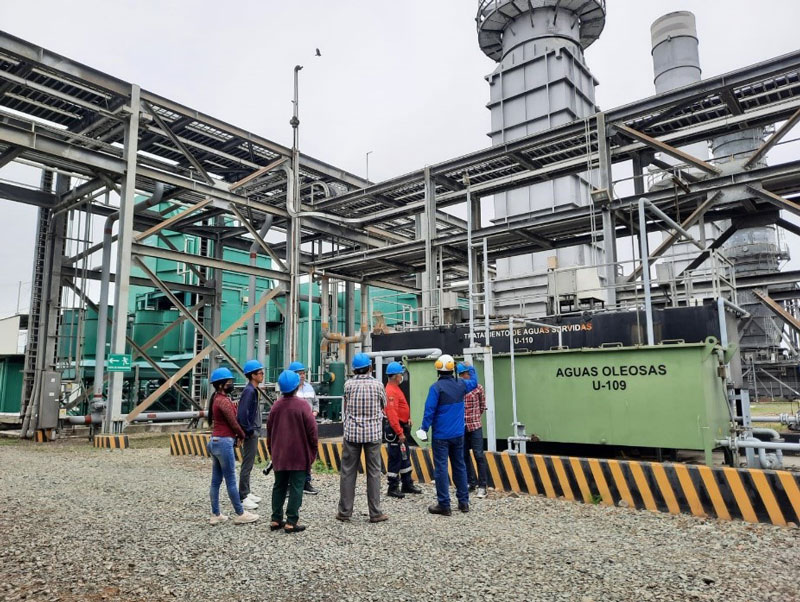Birds on a suicide mission: The death of thousands of birds each September is a mystery to scientists but perfectly logical to the the locals
By Liam Higgins
The indigenous people living near the high plains of Ozogoche in Chimborazo Province call it the “The Tribute.” Scientists who have studied it say they have some ideas but that it remains mostly a mystery.

An Ozogoche native displays a dead cuvivíe.
The tribute, or the mystery, however you classify it, is the mass suicide every September of thousands, of migratory birds, who plunge into the cold lagoons in and around Sangay National Park, where they die almost instantly.
Called cuvivíes by the locals, and upland sandpipers by scientists, the birds are known to migrate annually from Alaska to the Argetinian pampas before heading north again, where some of them meet their death in the Ecuadorian highlands.
Dr. Hans de Vries of Quito’s Catholic University says one explanation for the mass suicide is that it is the effect of hunger, weakness, or sickness on the cuvivíes. “They are fatigued and when they fall into the Ozogoche lagoons to feed and drink the cold water kills them quickly due to a rapid decrease in their body warmth,” he says.
He adds that the clinical description of the birds’ death does not necessarily answer the question of why they do it. “Many migratory birds become hungry and fatigued in their journeys but they don’t kill themselves. They continue on their paths and only rest and eat with the others in their groups,” de Vries says.
The local indigenous population, called the Yachacs, say there is no doubt about the reason for the suicide. “The lagoons are places of great healing powers, where eternity and the present intersect, and this attracts the cuvivíes,” says Angel Charicando. “This is a place of cleansing and regeneration and the birds want to die here.”
According to Charicando, the people of the region have known about the healing properties of the lagoons for centuries and routinely bathe in their waters despite temperatures that are only a few degrees above freezing.
During the cuvivíes’ mass suicide, the Yachacs living nearby come to the shores of the lagoons and collect the bodies, often accompanied by musicians and dancers. “This is a joyous occasion for us and a time to celebrate resurrection,” says Charicando.
Often, the birds are cooked into a stew that, when eaten, is thought to bring good luck.


















